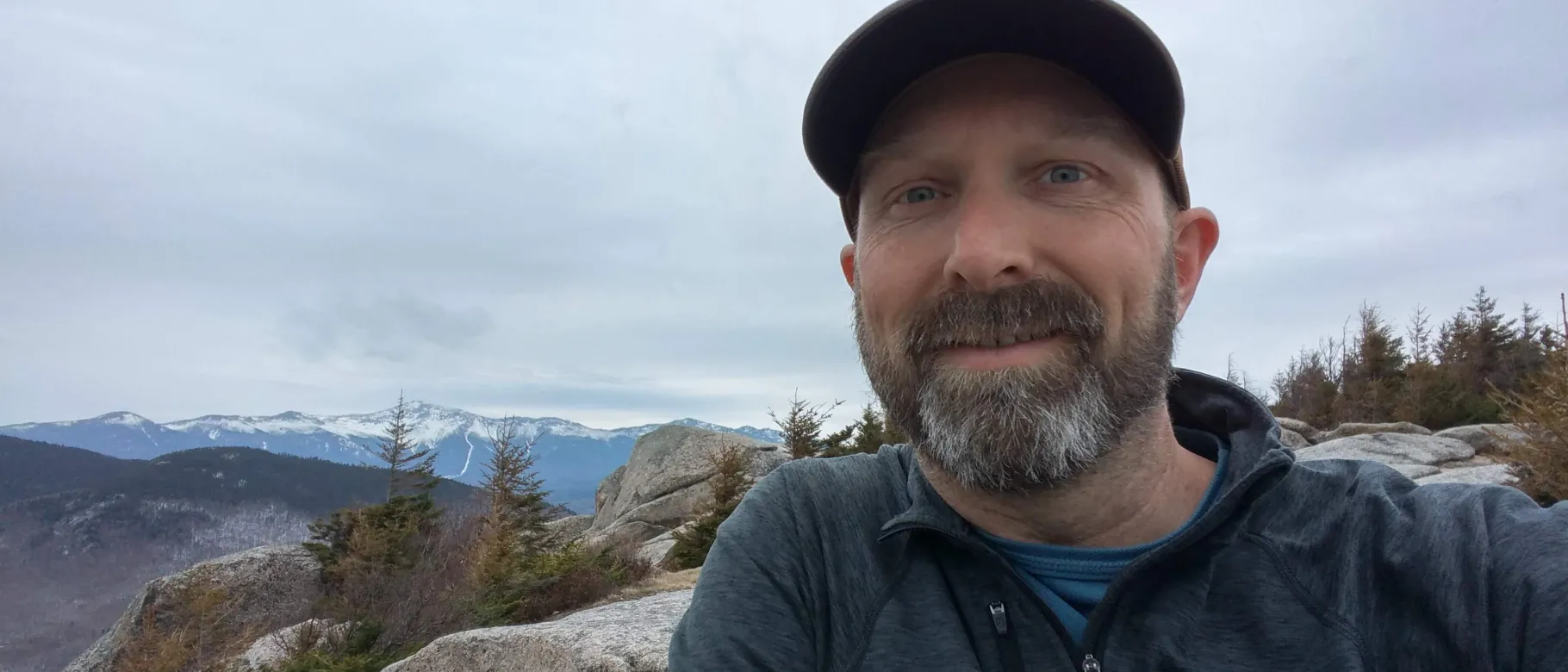Three alums from Physician Assistant Class of 2016 share their COVID-19 perspectives

The novel coronavirus continues to spread at an alarming rate. More than 4.1 million people worldwide have been infected with the virus, with the United States at the epicenter of the pandemic. In documenting this unprecedented crisis, UNE News has reached out to several alumni to tell their stories working on health care’s front lines. They told us about the challenges they face each day and their concerns for the future, but they also spread messages of hope.
Here, three 2016 alumni of UNE’s Master of Science Physician Assistant (M.S.P.A.) program — the only program of its kind in the state — share their stories working for MaineGeneral Health in Maine’s central region.
JASON BARSCHDORF, M.S.P.A. ’16
For Jason Barschdorf, working at MaineGeneral Health’s acute walk-in clinic during the coronavirus pandemic has made him think in terms of extremes.
“At one extreme, I can recognize the importance my work has in impacting people’s health and wellness. At the other end, I feel helpless,” said the Yarmouth native. “It has never been clearer to me that the importance of a person, a title, a career, or a job goes far beyond the numbers on a paycheck or number of years of education someone has.”
Barschdorf said the first days of the COVID-19 crisis were tense, and he spent hours reading and watching everything he could find to learn about the virus that has killed hundreds of thousands across the globe.
“It is very unsettling to spend your whole day saying, ‘I don’t know.’ It became instantly clear we were all learning and developing an understanding and a plan on the fly,” he said.
But despite the uncertainty, Barschdorf said he has a great team to support him.
“What has been reassuring is that good folks keep showing up despite all the unknowns and constant change,” he said. “It has never been a job I could do alone; this has just emphasized the importance of my work community.”
He advised those in the UNE community to “hang tight” as the crisis continues. “Take care of yourself, your family, and your friends, and let your family and friends take care of you,” he said.
LON CAMERON, M.S.P.A. ’16
Lon Cameron also works at a MaineGeneral Express Care clinic, where patients’ needs are often urgent. Cameron said the pandemic has altered his perceptions of how fast medicine can change and is changing.
“It seems like each day provides a new set of challenges in working to accommodate patient needs as well as those of professional staff,” said Cameron, of Bangor.
Cameron recalled feeling a preliminary romantic vision about his chosen profession prior to pursuing a graduate experience at UNE. While graduate school and the current crisis have served to suppress much of that initial romanticism, they also have provided a chance for him to reconnect with the desire and drive to deliver quality patient-centered care.
“Once the pandemic hit, we had to quickly make adjustments that ultimately have it feeling like I’ve started a new job all over again — all the excitement, nervousness, and anxieties have resurfaced,” he said. “I still very much find purpose in showing up to care for those in need of urgent medical attention.”
Cameron is still nervous about COVID-19 — hospital guidelines continue to shift, as do medical supplies, and staff work incredibly long hours — but he is also grateful for the support system he has, including many members of the UNE community.
“As a health care provider, I am a daily witness to the effect this situation is having on our communities,” he said. “But I have the good fortune of working with several graduate school peers.”
And Cameron said having those UNE connections has helped push him through the difficulties of the pandemic.
“I recently shared a laugh with one of my peers while reminiscing about our UNE experience — our schedules, lecturers, material content, and all of the expectations of ourselves we incessantly juggled,” he said. “In some ways, it feels like we are right back to those moments.”
DAVID GONNELLA, M.S.P.A. ’16, PA-C
David Gonnella, another express care physician assistant, said the COVID-19 outbreak has given him a heightened appreciation for the relevance of his profession.
“The phones in our clinics have been ringing more than ever with patients searching for clear and authoritative medical advice,” said the 35-year-old from Ramsey, New Jersey.
Gonnella also said he has remained optimistic throughout the outbreak, thanks in part to swift action by his employer to develop a response plan to the pandemic. He said the organization briefs staff daily on its strategies to mitigate community spread of the coronavirus, including increased use of telemedicine, examining patients outdoors when possible, and masking patients — even those without respiratory symptoms — who come into the building.
“These measures have helped keep our facility from turning into an epicenter of disease transmission in the community,” he said. “I honestly feel more concerned going food shopping than I do working in the clinic.”
Gonnella said the pandemic presents an opportunity for health care professionals to rise up amid the uncertainty and take charge of a crisis unique to them.
“This is our time to find creative ways, in keeping with best scientific practices, to step up to an incredible challenge for the wellbeing of the patients in our communities,” he said.
He also spoke out to UNE graduates entering health care fields and urged them to answer the call. “For those of you entering a medical profession, you are needed more than ever. This is our time to serve,” he said.
